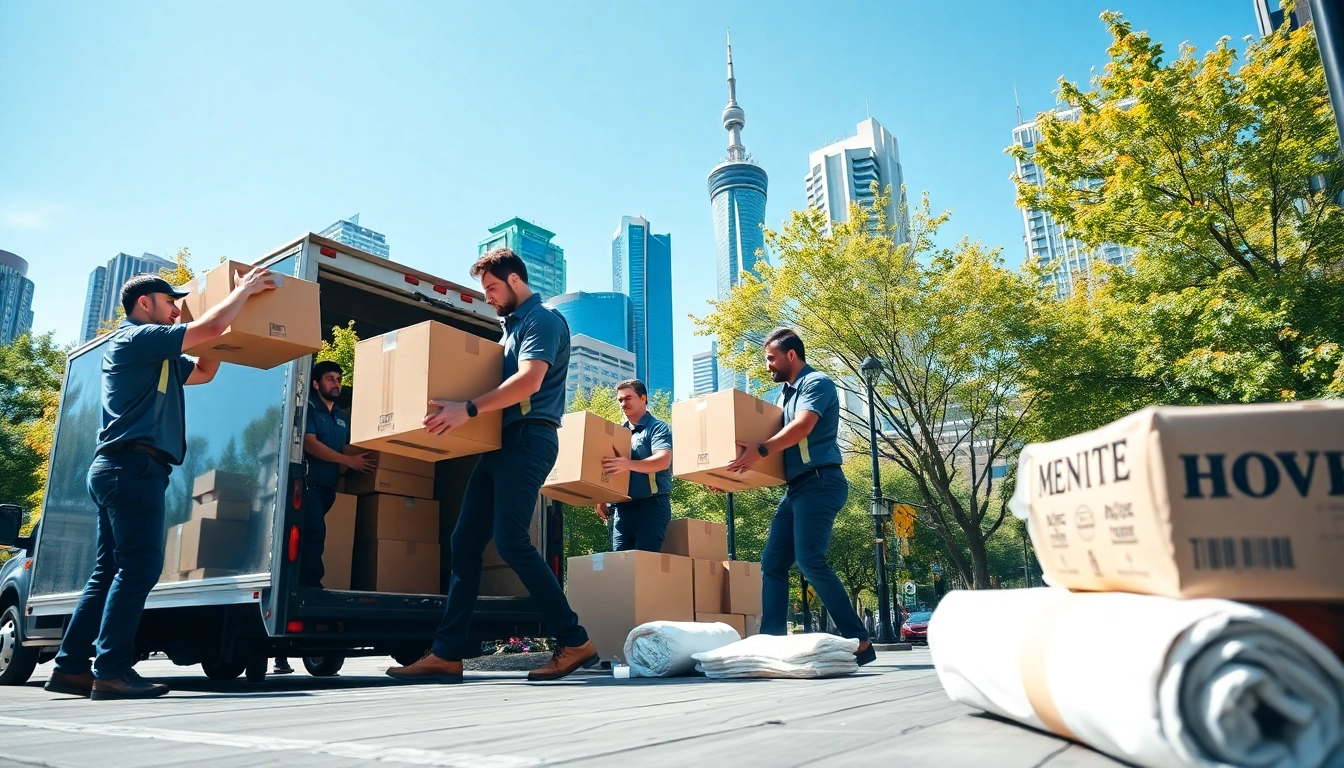Understanding the Moving Process in Toronto
Relocating within a bustling metropolis like Toronto can seem daunting but understanding the moving process is the first step to ensuring that the experience goes smoothly. The process involves various stages from planning and packing to moving in and settling down. As you embark on your journey, you may want to consider expert tips and insights that can streamline your efforts. To get started with your planned move, you might find valuable resources and support from local service providers who specialize in moving Toronto.
What to Expect When Moving Toronto
When moving in Toronto, it’s important to set realistic expectations. Each move will come with its own set of challenges, whether they are related to logistics, time management, or packing. Here are some key aspects you might face:
- Urban Environment: Toronto, being a vibrant urban center, has its unique challenges including traffic, parking restrictions, and high-rise buildings which often require specialized services for moving.
- Regulations: Familiarize yourself with local moving regulations, including potential permits that you may need for street parking or usage of elevators in condo buildings.
- Weather Conditions: The weather can greatly affect your moving day, especially during winter months when icy conditions can make transportation tricky.
Key Factors to Consider
As you begin planning your move, consider the following factors:
- Timeline: Create a detailed moving timeline that includes everything from when you need to start packing to when utilities need to be transferred.
- Budget: Assess your moving budget, taking into account costs for moving services, supplies, and unexpected expenses.
- Location: Research your new neighborhood. Understanding the area, including proximity to work, schools, and amenities, will help ease your transition.
Timeline for Planning Your Move
A well-crafted timeline is critical for a successful move. Here’s a general framework:
- 8 Weeks Prior: Start decluttering and listing your current items for donation or sale.
- 6 Weeks Prior: Research moving companies and get quotes. Confirm booking with your chosen mover.
- 4 Weeks Prior: Begin packing non-essential items. Notify utility companies about your move.
- 1 Week Prior: Pack essentials and clean your current residence. Confirm logistics with your moving company.
- Moving Day: Verify arrival times and ensure all items are loaded. Carry out a final walkthrough of your old residence.
Choosing a Reliable Moving Company in Toronto
The selection of a moving company can greatly influence the overall experience of your relocation. Ensuring you choose a trustable service is crucial.
Key Qualities of Top Moving Toronto Services
When evaluating moving companies, look for these fundamental characteristics:
- Experience: A company with a solid track record in managing moves in Toronto will likely have better knowledge regarding the specific challenges of urban logistics.
- Insurance and Licensing: Ensure that the company is adequately insured and properly licensed to operate in Ontario.
- Customer Service: A commitment to customer satisfaction indicates a company that will be responsive to your needs throughout the moving process.
Questions to Ask Potential Movers
As you narrow down your options, consider these important questions:
- Can you provide references or reviews from past clients?
- What services are included in your quote?
- How do you handle delays or unexpected issues on moving day?
- Do you have additional provisions for packing delicate or valuable items?
Comparing Quotes and Services
Get quotes from multiple moving companies and consider the following:
- Price: While affordability is essential, ensure you assess the value of services offered rather than only the cost.
- Services Offered: Check if the companies offer any additional services like packing assistance, storage options, or special handling for fragile items.
- Availability: Confirm that the mover can accommodate your preferred moving date and time.
Preparing for Your Move: Tips and Tricks
Preparation is key to a seamless moving experience. With careful planning and organization, you can reduce stress during this busy time.
Packing Essentials for a Moving Toronto
When packing, consider acquiring the following supplies:
- Sturdy Boxes: Choose various sizes to fit different items.
- Bubble Wrap and Padding: Necessary for protecting fragile items.
- Markers: To label boxes clearly for easy identification.
- Moving Tape: High-quality tape is crucial for sealing boxes properly.
Labels and Inventory Management
Effective labeling and inventory management can simplify the unpacking process:
- Label each box with its contents and the room it belongs to in your new home.
- Create an inventory list, noting high-value items and their condition before the move.
- Consider using colored labels for different rooms to make identification easier upon arrival.
Managing Utilities and Address Changes
Don’t overlook the logistics associated with your utilities and address changes. Here’s a guideline:
- Contact utility providers at least two weeks prior to your move to schedule disconnection and reconnection.
- Update your address with banks, subscription services, and any important contacts to prevent disruptions.
- Consider setting up mail forwarding with Canada Post to ensure you don’t miss important documents during the transition.
Common Challenges When Moving Toronto
No move is without its challenges, especially in an urban setting like Toronto. Anticipating possible hurdles can help you navigate them effectively.
Dealing with Traffic and Urban Logistics
Traffic congestion can significantly impact your moving day:
- Plan Your Route: Choose less congested routes if possible and aim to schedule your move early in the morning or during off-peak hours.
- Use GPS Tools: Utilize navigation apps that provide real-time traffic updates to avoid delays.
Weather Considerations and Seasonal Tips
The seasonal climate of Toronto can pose challenges. Consider the following:
- Summer: Hot and humid conditions can have the potential to cause discomfort. Stay hydrated and ensure all workers take necessary breaks.
- Winter: Snow and ice can make moving hazardous. Be prepared with proper footwear and keep your walkways and driveways clear.
Handling Special Items and Fragile Goods
Some items require extra care during a move:
- Electronics: Retain original packaging if available. Otherwise, pack them snugly in boxes with plenty of cushioning material.
- Artwork: Use specialized boxes or bubble wrap to protect frames and ensure they’re secured during transport.
- Plants: Check your new residence’s policies on plants and consider how to keep them thriving during transport.
After the Move: Settling into Your New Home
Once you arrive at your new home, the focus shifts from moving to settling in. Here are some strategies to make this transition smoother.
Unpacking Strategies for Moving Toronto
Unpacking can feel overwhelming, but an organized approach can ease the burden:
- Prioritize: Unpack essential items first, such as kitchenware and personal belongings, to establish functionality quickly.
- Room by Room: Tackle one room at a time to avoid feeling overwhelmed, allowing you to focus on creating a comfortable space.
- Set Up Utilities: Ensure that all necessary utilities like cable and internet are installed so you can settle in comfortably.
Getting to Know Your New Neighborhood
Becoming familiar with your community is essential:
- Explore Local Amenities: Take time to visit local grocery stores, parks, and restaurants to get a feel for the area.
- Engage with Neighbors: Don’t hesitate to introduce yourself to neighbors. They can offer valuable insights about the area.
Local Resources and Community Engagement
Engagement with local resources can enhance your living experience:
- Local Services: Identify essential services such as healthcare, schools, and recreational facilities.
- Community Events: Participate in local events or neighborhood associations to feel more integrated into your new surroundings.













Leave a Reply